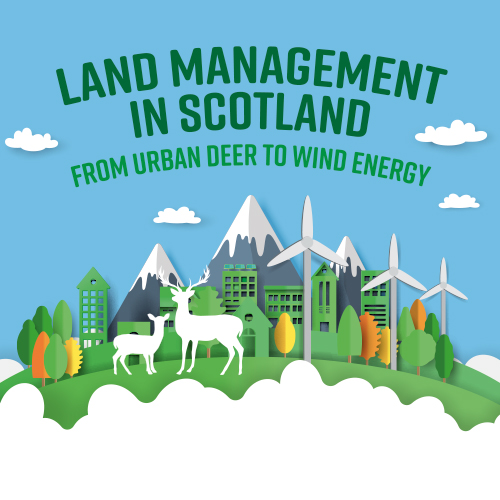7 December 2021, 11:00 to 12:00.
Research seminar.
Speakers: Jessica Hogan and Abi Whitefield (PhD candidates, School of Geography and Sustainable Development, University of St Andrews)
Abstracts
Jessica Hogan – Worldwide, countries have turned to renewables in order to meet international climate change agreements. However, renewables like wind energy often face opposition by local communities which can stall or halt projects permanently. While a clear link has been found between community ownership of wind energy projects and increased social acceptance, there has been limited empirical research exploring the nature of this linkage. Here, we test the argument that community energy projects may gain greater acceptance using a mail-out survey in Scotland to compare communities’ attitudes towards local onshore wind developments. We sampled each of the community benefit schemes described by the Scottish Government: (1) community ownership; (2) shared-ownership (i.e. cooperative); and (3) community benefits (i.e. for-profit business which provides money to a community fund). One-way ANOVAs identified the mean differences between the communities’ attitudes towards the wind developments. Data revealed that, on average, those with community or shared ownership tend to support the wind development more, feel more involved, perceive more benefits that are fairly distributed, perceive less risks, and support their own benefit schemes. These results support the contention that community ownership leads to greater support, but they show that it is only one of several factors shaping public acceptance. Specifically, they indicate that energy justice aspects may be of equal or greater importance than the type of ownership.
Abi Whitefield – The problem of deer populations in urban areas of Scotland has become an increasingly pressing issue in recent years, due to their growing populations and resultant encroachment into urban environments. As a result, human-deer interaction has increased, with conflict between the two resulting in the possible need for deer management. A paucity of previous research means that little is known about these urban deer populations, with perceptions of both urban deer and urban deer management poorly understood. Consequently, policies are being shaped without a robust evidence-base. My PhD research aims to understand the perceptions and experiences of experts, local authority staff, local councillors and the public regarding urban deer and their management, aiming to shape policymaking. This talk will explain the main debates surrounding the topic and highlight progress made thus far.
Speakers
Jessica Hogan – Working in rural communities, Jessica Hogan’s research has often investigated conflict and coexistence. She is currently completing her PhD where she is investigating communities’ acceptance/opposition towards wind energy in their local areas. Her research interests include energy justice, particularly around benefits and participation, community energy, and conservation conflicts.
Abi Whitefield – Abi Whitefield is a third year PhD student in the School of Geography and Sustainable Development at the University of St Andrews. Her current research is on the topic of urban deer in Scotland, where she uses a variety of social science methods to better understand the perceptions of a range of stakeholders on the topic. She is interested in the interaction between environmental management, social science and policymaking.
STACEES Land Management in Scotland poster 2021
